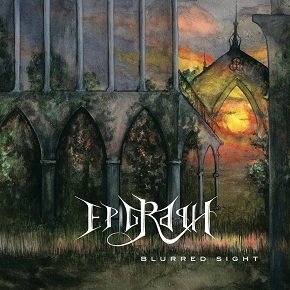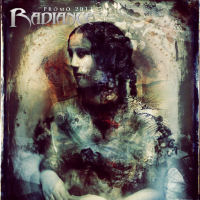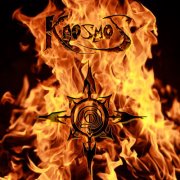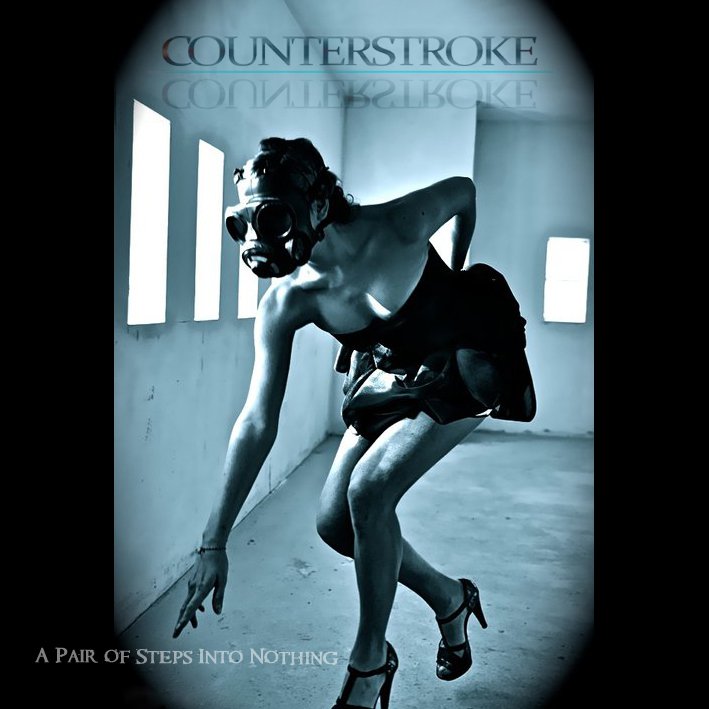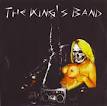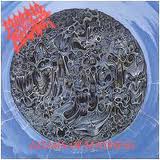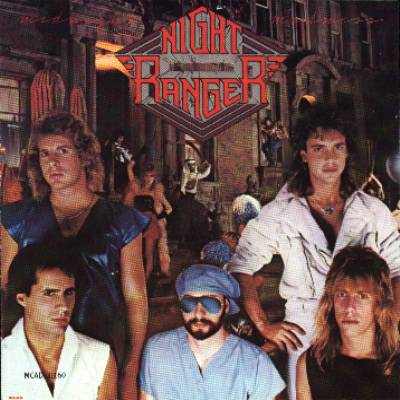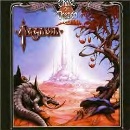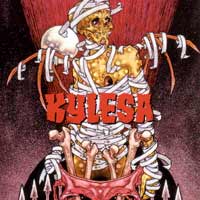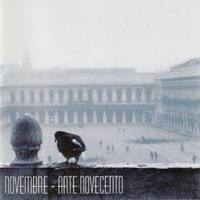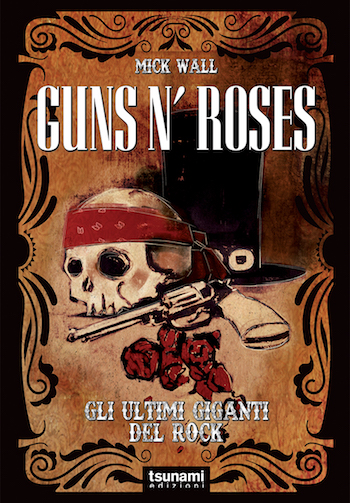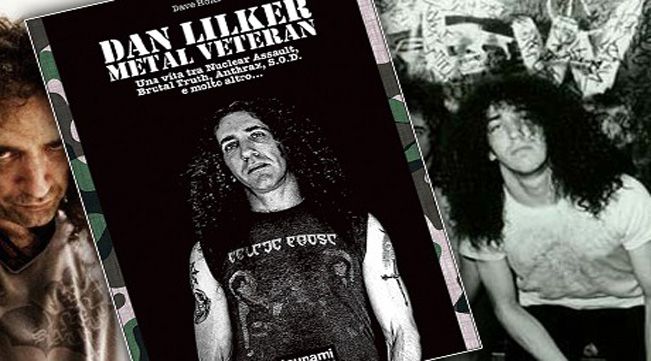Enslaved

Line up:
Ivar Bjørnson – lead guitar
Arve "Ice Dale" Isdal – rhythm guitar
Cato Bekkevold – drums
Herbrand Larsen – keyboards, backing vocals
--- ENGLISH VERSION ---
It's a cold afternoon here in Helsinki as we head to Kulttuuritalo. The reason being tonight's show of Dimmu Borgir with Enslaved and Sahg. An all-norwegian night! But before that, we had the chance to get on Enslaved tour bus and between water bottles and used blankets, we had quite an interesting conversation with the singer Grutle Kjellson, about the new record, touring, and more! Here's the outcome:
Marco: First of all nice to meet you, and thanks to be with us for this interview today! My first question is: How do you describe the evolution of your sound in these past few years, especially from ”Isa” onwards, and what do you think are the reasons that led you to this?
Grutle: Well, the reason is that, pretty much that there is no reason. We are just going with the flow, I mean, we don't look back, we don't think, we don't have any plans for our sound or anything like that. We just like it very very simple, and try to make our own favorite music I guess. For the time being. We don't have any limitations or any specific goals on how it should sound like. If the song ends up to be like a two-riff primitive song, it's fine, as long as it's good. If we want to use some other stuff, suddenly we thought like ”ah, let's use a violin in this song!”, we would probably do it. It's not like we have done it, but we don't think in terms that this is a kind of framework, it's just making music and having total artistic and creative freedom.
M.: So you don't like the idea of having maybe some kind of ”label”, since someone described your music I think as ”progressive post-black metal”?
G.: What is ”post-black metal”? [laughs]
We don't have labels. You know, the thing is that people on the internet need to have something to discuss, and I think that's probably their most interesting subjects. But about labels, I mean, it's very strange to put labels on own music I think. And even if we did so, people would disagree and start to discuss like ”uh, this is post-black metal. No this is viking metal. Oh really?”. I don't even care, it's music! [laughs]
We just say ”extreme metal”, and then people can interpret that in the way they want. And they do anyway, so... there really is no point! [laughs]
Essi: So, did you do anything differently in the production of this new album [Axioma Ethica Odini]? Since the guitars sounds a bit better...
G.: Yeah. It's a different production. It's a different approach to the whole thing. Actually, we wanted to have more upfront guitars, they are a little bit more distorted. With ”Vertebrae” we were really much into ”70ies production”, so we wanted to make the sound really organic, and this time we wanted to have a more ”right-in-the-face” production. It suits the songs better and it's a little less progressive, a little more metal. And we actually had a lot more time to do this album.
Suddenly our tour was cancelled, and we had like 6 extra months do it, to produce it, you know, both for the lyrics and music. So the preparations before we entered the studio were a lot better, and we kind of knew what we wanted to do. Not the songs, or the actual structure, but we had a specific goal on how we wanted it to sound, how we wanted the sound to be like.
E.: And the clean vocals sounded quite different this time.
G.: Yeah, I mean, they are more, how should I put it... they used to be more, like, a choir, something like that, while it's more ”normal” vocals now.
M.: Yea, there is for example the last song where in some point you could say that it sounds almost power metal-like voice...
G.: Ehm... [turning backwards and laughing] I didn't hear that!
E.: So this was a natural change for you?
G.: Yeah, I would say that. It's like a natural step ahead. And I think when you listen to ”Frost” from '94 and ”Axioma Ethica Odini” today, I think it's a logical step. It's not logical for a band which exists for so many years to sound exactly the same. A natural thing then would be like with ”Blodhemn”, but that was '98 or something like that because we were ”bored” with our own music. Like many many bands do, because they are staying in the same frame. So I think it's very logical. I think it's very logical for us to sound the way we do now in 2010.
M.: That goes to my next question, because it was exactly like this. For me this album sounds as a step back from ”Vertabrae” with all its experimentations, and you can see some elements from those earliest albums, like ”Frost”.
G.: Yea, you are probably right. I mean Enslaved is still a metal band. The red line is still there!
M.: And it would be a shame otherwise! But I was curious also about... what is the meaning of the cover of the new album? It's kinda weird I think.
G.: Cool. What do you think it is?
M.: Well I like it, though I'm not sure I got it exactly.
E.: So what do you, think it is?
G.: I know what it is. It's art. So do you think I would reveal it? Why would I? It's art.
M.: To me it seems like there is this bald guy who seems like drowning... in the center. But I'm not so sure of that.
G.: That can be an interpretation. I mean, it's a circle, and there's a man... and there is pieces falling out of this man's head, or... there are pieces coming back to his head! And the texture on the cover as you see, there's a circle, and there's something intense. There's an intensity around it. It's like a change in the circle. Something is flowing into the circle, into his mind, and out his mind. So, in a way, it's the inner consciousness being challenged by the outer conciousness. The microcosmos being challenged by the macro. The inner self is being challenged by the surrounding chaos. If you've seen the actual cd cover, if you turn it around you see the whole picture, without the circle. Inside the booklet.
M.: Yea, I was curious to know about how would have been your interpretation of it, because that kind of image is... almost, ”inspiring”, in a sort of way.
G.: Thanks man.
M.: But instead, you mentioned alread before ”Frost”, and I was thinking about how do you look now at your old material? ”Frost” is actually still one of my favourite albums of your band.
G.: I don't know. I think haven't listened to ”Frost” in something like 15 years. [laughs]
Well, I'm still proud of the old records. It's something that really represents how we stood back then. And I'm not a fan of re-recording, to go back and change things. Because I think that would be wrong. They represented us very well, we were very proud of those releases when they came out and I am still very proud of them now. Although we have changed, of course. They are good albums. Maybe not that good technically [laughs], on the structure of those songs. I mean, it's way different, but we did our best back then. As we do now, so...
M.: But you did re-record Jotunblod for this record.
G.: This was actually... You see, I wouldn't really look to that as a re-recording. It's more or less like a cover song of ourselves. It has a doom approach to it, and instead of making a doom song we wanted to... it's a bit like challenging yourself to make something. Just with the same approach that you have when you are making cover songs. To make it your own song. So we made it our own 2010 song, from the '93 song.
E.: So you ”updated” it.
G.: Yeah. it sounds very different!
E.: And since now in Norway you are considered quite a ”big band” and you've reached success, how does it feel instead when you play in some countries where you are not so well known, and there are just a few people watching?
M.: I remember in Milan on the ”Isa” tour, there were about 50 people...
G.: Yeah! I don't know what happened, because we used to have a huge crowd in Italy... at least back in the 90ies.
M.: Yes I was a bit upset about that too, because... I mean, it's Enslaved!
G.: Everybody seems to have a weird time in Italy. I don't know, maybe they want to play but there's not enough people...
M.: Now Blind Guardian is a band that just made sold-out in Italy.
G.: Blind Guardian??? [turns backward] ...Alright. They're big there, they're not that big in Norway! [laughs] If they play in Norway there would show up 25 people!
E.: But how does it feel to play for like 50 people?
G.: You know, you have to give those 50 people the same credit you would give to 5000. You don't get the same energy [laughs] but you still have to do your best!
M.: Maybe there's just that one drunk guy in the front yelling like ”yeaaaah!”.
G.: It's actually cool if there would be like 10 people going ape shit! I remember the worst show we had in numbers was actually in Cleveland, in the States, in 2003. The tour we were on was not announced at all, nobody knew we were there! And it was like, way outside Cleveland center, and it showed up thirteen (13!!) people! So when people were going to the bar we stopped them, and said ”oh we will wait for you guys”. Like when people started talking we were like ”Ehm.. pay attention! We are actually trying to perform here!”. But we still had a good time. You have to adjust, and give those people some kind of entertainment. And we always play our full set, even though it shows up 13 people.
E: Then what's the worst tour memory that you have?
G: The worst tour memory? [After figuring out there are many] I have a lot... I remember I lost my voice in the former DDR, East Germany, and was in this small village, so it really was East Germany! Someone brought me to this doctor, and you actually had to call him ”Herr Doctor”! Otherwise he wouldn't talk to you. So you had to be polite! And he had this weird huge light-thing on his forehead, he was examining me, and gave me a f***ing cortisone injection in my throat!!! Then he told me to shut up for at least 3 hours and eat like 2 liters of ice cream, and then: "then you're gonna be alright my boy!". I was like "ok.", I tried, and it actually worked!
I sang like a Valkyria then! [laughs]
E: So any expectations for tonight's show?
G: Yeah it's Friday, we played in Tampere yesterday, and people were... They seemed a bit shy! Finns on a Thursday, were like [mime some shy, restrained espression barely clapping hands]
E: Yes, but finns on a Friday is different!
G: Exactly! Nobody is going to work tomorrow, so I guess it's going to be a different thing tonight.
M: How do you think the new songs have been recieved so far?
G: Very well actually! Especially the second new song we play. It's a song called ”Raidho”, this is very well received actually. And it really looks good for the rest of the dates. It always takes time for people to get to know the new songs, and now we have our album out from less than a month. So we will probably see more the results, they will be more evident when we start to tour in the States, because then the album will be out from 2-3 months. But yeah, so far so good.
M: Let's change a bit the topic. I was interested to ask you how did you get into that project, Trinacria?
G: Well, that was actually an idea which was initiated by a section of the Norwegian culture department. They wanted to make a fusion of noise music and metal music. Because they are really close together, but there hasn't been any collaboration at that time. So they asked to this female noise duo, which is actually called Fe-male, and they asked Ivar, our guitar player, if he was interested in joining that project. And pretty easily Ivar asked me, the rest of the band, and I thought it was a good idea, interesting... It actually became successful, we did a tour in Norway, we made an album... It was never supposed to be an album, because first it was just meant to be one concert, actually two, one was Inferno Metal Festival and then Oslo Jazz Festival. And suddenly it became a tour, then we decided to record... to became a band of it, instead of just a project.
M.: So we will maybe hear more about it?
G.: Yeah, we are definetly gonna do more albums, but everybody is very occupied with their respective bands. So we will try to make a recording next year. If we have time. Probably in the end of 2011, so maybe we will have a new Trinacria album in 2012.
M.: Ok, that's interesting. I'm looking forward to that.
But I wanted to ask you also another thing. When you started playing, and you were really young teenagers, you were into this era of ”church-burning” thing with the so-called True Norwegian Black Metal scene etc. What was it that made you think ”I want to play this music”? What's left from those days in you now?
G.: Well we were very few bands back then, no one knew what black metal or satanism or anything... was in '91, when we started, in 1990-91. People were not afraid of anything. If they saw someone wearing an inverted cross and a t-shirt with demons or stuff like that, People wouldn't react at all because they didn't knew! They were like ”uhm, whatever...”.
All that changed of course, when the churches started to burn. Suddenly everyone with long hair was either a satanist or a murderer. And at the same time we had this biker war between the Hell's Angels and the Bandidos, so you were either a criminal bikers or a criminal satanist! Things are cooling down now in Norway, but it was crazy back in the nineties! You couldn't go to the pub, having a beer, without some asshole bothering you. Accusing you for this and that. It was really bad, especially around '95-'96. It was like hell... And maybe it was supposed to be like that, you know?
M.: Ok thanks, for me it's all, if you want to add something more...
E.: Maybe a nice norwegian joke?
G.: A nice norwegian joke? Uhm... here's a good one: How many unemployed documentary-movie makers you need to change a light bulb? [silence]
Two, one to change the light bulb, and one to make an extremely bad documentary about norwegian black metal.
M.: I think I saw some of those!
G.: [laughs] Für Helvete!
M.: Thank you so much for the interview!
G.: Thank you!
E.: Thank you!
--- VERSIONE ITALIANA ---
E' una serata fredda qui ad Helsinki, quando ci dirigiamo verso il Kulttuuritalo. Il motivo? Lo show dei Dimmu Borgir, accompagnati da Enslaved e Sahg. Una nottata tutta norvegese! Ma prima di ciò, abbiamo avuto la possibilità di salire sul tour bus degli Enslaved, e tra bottigliette d'acqua e lenzuola stropicciate, ci siamo prestati ad una interessante conversazione con il cantante Grutle Kjellson, a proposito del nuovo disco, dei tour, e molt'altro! Ecco il risultato:
Marco: Prima di tutto è un piacere essere qui con te, e grazie per essere qui con noi oggi per quest'intervista! La mia prima domanda è: Come descriveresti l'evoluzione del vostro sound in questi ultimi anni, in particolare da ”Isa” in avanti? E quale pensi sia la ragione che vi abbia spinto a farlo?
Grutle: Bè ecco, la ragione è fondamentalmente che non c'è nessuna ragione. Seguiamo semplicemente la corrente. Non ci guardiamo indietro, non pensiamo, non abbiamo niente di pianificato riguardo alle nostre sonorità. Ci piace mantenere il tutto molto molto semplice, ed immagino provare a comporre la musica che più ci piace. Per il momento ovviamente.
Non abbiamo nessuna limitazione, o obbiettivo specifico su come dovrebbe essere. Se una canzone finisce con l'essere un brano primitivo composto da due riff, per me va bene, purchè il tutto funzioni. Se vogliamo usare qualche altro strumento, per esempio se improvvisamente pensassimo ”ehi, potremmo usare un violino in questa canzone!”, probabilmente lo faremmo.
Non che sia mai successo, ma quello che voglio dire è che non vediamo tutto questo come una specie di cornice ben definita, è solo fare musica, ed avere una totale libertà artistica e creativa.
M.: Quindi non ti piace l'idea di avere alcun tipo di etichetta, dato che qualcuno credo abbia descritto la vostra musica attuale come ”progressive post-black metal”?
G.: Che diavolo è il ”post-black metal”? [ride]
Non abbiamo nessuna etichetta. Sai, il fatto è che la gente su internet deve avere qualcosa di cui discutere, e credo queste siano proprio tra le loro tematiche preferite. Ma riguardo alle etichette, direi che è molto strano darne alla tua stessa musica. E anche se lo avessimo fatto, la gente non sarebbe d'accordo. Comincerebbero a discutere e dire ”Oh, questo è post-black metal”, ”No, questo è viking metal” ”Veramente?”, e così via. Non m'interessa nemmeno, è musica e basta! [ride]
Diciamo solo che è ”extreme metal”, poi la gente può interpretarlo come gli pare. E lo fanno comunque, quindi... E' inutile anche stare a pensarci! [ride]
Essi: E invece avete cambiato qualcosa nella produzione di questo nuovo disco [Axioma Ethica Odini]? Le chitarre sembrano decisamente diverse, come più presenti...
G.: Si, è una produzione differente. E' un approccio diverso in tutto e per tutto. A dire il vero, volevamo avere delle chitarre più dirette, sono un pò puù distorte. Con ”Vertebrae” ci eravamo davvero fissati con una produzione in stile anni '70, quindi volevamo ottenere un suono davvero più organico, e questa volta abbiamo cercato di avere una produzione più ”in your face”. Calza meglio ai nuovi pezzi, ed è un pò meno progressive, un pò più metal-oriented. E a dire il vero abbiamo avuto anche molto più tempo per comporre questo album.
Improvvisamente un tour venne cancellato, ed abbiamo avuto qualcosa come sei mesi extra per la produzione, sia riguardo la creazione dei testi che la musica. Quindi i preparativi prima di entrare in studio sono stati decisamente migliori, ed avevamo già un'idea di quel che volevamo fare. Non avevamo in testa ancora le canzoni, la loro struttura effettiva, ma avevamo un obbiettivo specifico su come volevamo che suonasse il tutto.
E.: Ed il cantato pulito è piuttosto diverso stavolta.
G.: Si, la voce è... come posso dire... solitamente era più come un coro, o qualcosa del genere, mentre ora è come più ”normale”.
M.: In effetti ci sono per esempio alcune parti dell'ultimo brano che ad un certo punto sembrano quasi power metal...
G.: Ehm... [Si gira ridendo] Non ho sentito niente!
E.: Quindi è stato un cambiamento naturale in un certo senso per voi?
G.: Si, direi che è così. E' un naturale passo avanti. E credo che quando ascolti ”Frost” del '94, ed ”Axioma Ethica Odini” oggi, puoi vedere questa logica. Non è molto logico per una band che esiste da così tanti anni suonare esattamente allo stesso modo. Una cosa naturale sarebbe allora come con ”Blodhemn”, ma quello era il '98, perchè eravamo ”stufi” della nostra stessa musica. Così come lo sono molte band, perchè rimangono sempre nello stesso contesto. Perciò penso sia molto logico cambiare, così come lo è per noi suonare come facciamo ora nel 2010.
M.: Questo mi porta alla mia prossima domanda, che era esattamente riguardo a ciò. Per me questo disco sembra un pò un passo indietro a confronto con le sperimentazioni di ”Vertebrae”, ed è possibile vedere qualche elemento di quei primi album, come appunto ”Frost”.
G.: Si, penso tu abbia ragione. Voglio dire, gli Enslaved dopotutto sono sempre un gruppo metal. Il filo rosso è sempre lì!
M.: E sarebbe un peccato altrimenti! Ma un'altra cosa invece di cui sono curioso è il significato della copertina. Credo sia piuttosto particolare.
G.: Grande! Cosa pensi che rappresenti?
M.: Bè, mi piace, non sono sicuro di cosa possa rappresentare di preciso però.
E.: E tu cosa pensi che sia?
G.: Io lo so che cos'è. E' arte. Pensi che dovrei rivelarlo? Perchè dovrei? E' arte.
M.: A me sembra che ci sia come questo ragazzo pelato che pare annegare, nel centro. Ma non ne sono sicuro.
G.: Quella può essere un'interpretazione. E' un cerchio. E c'è un uomo... ci sono dei pezzi che si separano dalla testa di quest'uomo, o... ci sono pezzi che invece ritornano alla sua testa! E la struttura della copertina come puoi vedere, rappresenta questo cerchio, e qualcosa di... intenso. C'è una sorta di intensità attorno [a quest'uomo]. E' come un cambiamento nel cerchio. Qualcosa vi sta entrando, nel cerchio, nella sua testa, e fuori dalla sua testa.
Quindi in un certo senso è la coscienza interna, che è contrastata dalla coscienza del mondo esterno. Il microcosmo che viene sfidato dal macro[cosmo]. L'io interiore sfidato dal caos circostante.
Se hai presente la copertina completa, nel booklet, quando la giri puoi vedere l'immagine intera, senza cerchio.
M.: Esatto, ero curioso di sapere come l'avresti interpretata, perchè come immagine è, direi, quasi... ”ispiratrice”, in un certo senso.
G.: Grazie!
M.: Piuttosto, hai citato prima ”Frost”, e stavo pensando cosa ne pensi ora del vostro vecchio materiale? Per me ”Frost” è sempre uno dei vostri migliori album di sempre.
G.: Non saprei. Credo di non aver più ascoltato ”Frost” per qualcosa come 15 anni. [ride]
Sono ancora fiero dei vecchi dischi. E' qualcosa che rappresenta davvero quel che eravamo allora. E non sono un appassionato di riregistrazioni o cose simili, non mi va di tornare indietro e cambiare le cose. Perchè penso che sarebbe sbagliato. Ci hanno rappresentato molto bene, eravamo davvero orgogliosi di quegli album quando sono usciti, e sono ancora molto orgoglioso di loro tutt'oggi. Anche se siamo cambiati, ovviamente. Sono dei buoni dischi. Magari non così buoni tecnicamente [ride], riguardo alla struttura dei pezzi. E' molto diverso, ma allora facemmo del nostro meglio. E così facciamo ancora adesso.
M.: Però ”Jotunblod” l'avete invece ri-registrata per questo disco [Limited Ed.].
G.: Ecco vedi, in realtà... non guardo per niente a quella come una ri-registrazione. E' più o meno una cover di noi stessi. Ha un'approccio doom, e invece di fare una canzone doom volevamo... sfidarci a fare qualcosa [di creativo]. Un pò con lo stesso approccio che hai quando fai delle semplici cover. Cercando di farle tue. Così l'abbiamo fatta nostra nel 2010, dalla canzone che era nel '93.
E.: L'avete ”aggiornata”.
G.: Si, è molto diversa!
E.: E dato che ora in Norvegia sieti considerati un gruppo piuttosto grosso, ed avete raggiunto un certo successo, come ci si sente invece a suonare in dei paesi dove non siete così ben apprezzati, e ci sono magari solo un pugno di spettatori?
M.: Mi ricordo che a Milano durante il tour di ”Isa” c'erano si e no 50 persone...
G.: Si infatti! Non so cosa sia successo, perchè solitamente avevamo un grosso pubblico in Italia... almeno negli anni '90.
M.: Già, ero un pò deluso anch'io in proposito, voglio dire, dopotutto si tratta degli Enslaved!
G.: Chiunque sembra avere difficoltà ultimamente in Italia. Non saprei, magari vogliono suonare ma poi non c'è abbastanza gente interessata...
M.: Ora i Blind Guardian sono una di quelle band che fanno sold-out in Italia.
G.: I Blind Guardian??? [Si gira] ...Okaaay. Saranno famosi lì ma non sono poi così grossi in Norvegia! [ride] Se suonano in Norvegia si presenterebbero si e no 25 persone!
E.: Ma come ci si sente a suonare per una cinquantina di persone?
G.: Sai, devi dare a quelle 50 persone lo stesso riconoscimento che daresti a 5000. Ovviamente non ricevi la stessa carica [ride] Ma devi pur sempre fare del tuo meglio!
M.: E magari ci si ritrova con quell'unico tizio ubriaco in prima fila gridando ”yeaaaaah!”.
G.: A dire la verità sarebbe bello se ci fossere tipo 10 persone completamente scatenate! Mi ricordo che il peggior concerto che abbiamo mai avuto in termine di numeri fu nel 2003 a Cleveland, negli Stati Uniti. Il nostro tour non era stato promosso per niente, nessuno sapeva che eravamo lì! Oltretutto era decisamente lontano dal centro di Cleveland, e si presentarono tredici (13!!) persone! Quindi quando la gente andava al bar a prendere da bere noi la fermavamo e le dicevamo ”fate pure, vi aspettiamo”. Quando poi hanno iniziato a parlare tra loro gli abbiamo detto ”ehm... fate attenzione! Stiamo cercando di esibirci qui!”. Ma è stato comunque divertente. Devi accontentarti, e dare a quelle persone un intrattenimento di qualche genere. Noi suoniamo sempre tutti i brani in scaletta, anche se si presentano 13 persone.
E: Quindi qual'è invece il peggior ricordo che hai di un tour?
G: Il ricordo peggiore? [dopo averci pensato su ed essersi reso conto che ce ne sono troppi] Ne ho molti... Vediamo, mi ricordo che una volta persi la voce nella ex Repubblica Democratica Tedesca, nella Germania dell'Est. Ed era in questo piccolo paese, che proprio ti dava l'idea di Germania dell'Est! Qualcuno mi portò dal medico, e dovevi per forza chiamarlo ”Herr Doctor”, altrimenti non ti avrebbe rivolto la parola! Quindi dovevi essere educato! E poi aveva questa strana grossa luce sulla fronte, mi stava esaminando, e all'improvviso mi diede una fottuta iniezione di cortisone dritto in gola!
Poi mi disse di star zitto per almeno 3 ore, e di mangiare un paio di litri di gelato, e poi: ”allora ti passerà tutto ragazzo mio!”. E io stupito dissi ”ok”. Provai, ed alla fine ha funzionato!
Cantavo come una Valkyria! [ride]
E: Cosa ti aspetti invece dallo show di stasera?
G: Bè è venerdì, abbiamo suonato a Tampere ieri... e la gente sembrava quasi timida! I Finlandesi di giovedì sono tutti come impalati [mimando un'espressione timida e raccolta, battendo le mani a malapena]
E: Si ma i Finlandesi di venerdì sono un'altra cosa!
G: Esattamente! Nessuno andrà a lavorare domani, quindi immagino sarà una cosa ben diversa questa sera.
M: E come pensi che i nuovi pezzi siano stati accolti dal pubblico fin'ora?
G: A dire la verità molto bene! Specialmente la seconda che suoniamo. E' una canzone che s'intitola ”Raidho”, ed è stata accolta davvero molto bene. E sembra che sarà così anche per il resto delle date. Ci vuole sempre del tempo prima che la gente si abitui alle nuove canzoni, che inizi a conoscerle, ed ora il nostro album è uscito da meno di un mese. Quindi immagino che vedremo meglio i risultati quando ci imbarcheremo nel tour degli Stati Uniti, perchè allora l'album sarà uscito da 2-3 mesi. Ma fin'ora non c'è di che lamentarsi.
M: Cambiamo invece argomento. M'interesserebbe sapere come sei entrato nel progetto Trinacria.
G: Bè ecco, in realtà è stata un'idea iniziata da una sezione del Dipartimento della Cultura Norvegese. Volevano creare una fusione tra musica noise e musica metal. Dato che sono piuttosto vicine l'una con l'altra, ma non c'era mai stata alcuna collaborazione fino ad allora. Quindi chiesero a questo duo femminile di musica noise, che si chiama proprio Fe-male, e ad Ivar, il nostro chitarrista, se fosse interessato a prestarsi in questo progetto. Ed in men che non si dica Ivar aveva chiesto a me ed al resto della band. Ho pensato fosse una buona idea, un progetto interessante. Ed in realtà ha poi avuto un successo inaspettato. Abbiamo fatto un tour in Norvegia... prodotto un disco... che non sarebbe mai dovuto essere tale, perchè all'inizio il tutto doveva essere un solo concerto, o meglio due, il primo all'Inferno Metal Festival, e poi all'Oslo Jazz Festival. All'improvviso divenne un tour, poi decidemmo di registrare... di formare una band vera e propria, invece che un semplice progetto fine a sè stesso.
M.: Quindi ne sentiremo ancora parlare?
G.: Certo. Abbiamo assolutamente intenzione di fare altri dischi, ma al momento ognuno è occupato con le rispettive band. Perciò proveremo a registrare qualcosa magari l'anno prossimo. Se ne avremo l'occasione. Probabilmente alla fine del 2011, così che avremo un nuovo album dei Trinacria nel 2012.
M.: Bene, sembra interessante. Non vedo l'ora.
Ma volevo chiederti invece un'altra cosa ancora. Quando avete cominciato a suonare, ed eravate dei giovani adolescenti, vi siete trovati nel mezzo di questo periodo in cui venivano bruciate le chiese, con quella cosìddetta scena True Norwegian Black Metal, e così via. Cos'è che vi ha fatto pensare ”Voglio suonare questa musica”? E cosa ti è rimasto oggi di quei giorni?
G.: Eravamo davvero pochissime band allora, nessuno sapeva ancora cosa fossero il black metal o il satanismo nel '91, quando abbiamo iniziato, nel 1990-91. La gente non era affatto spaventata. Se vedevano qualcuno indossare una croce girata e una maglietta raffigurante dei demoni o cose simili, non aveva alcuna reazione, perchè non lo sapevano! Reagivano come ”oh, bè...”.
Tutto quello iniziò a cambiare ovviamente quando le chiese cominciarono a bruciare. All'improvviso chiunque avesse i capelli lunghi era o un satanista o un assassino. E come se non bastasse allo stesso tempo c'era questa lotta tra bikers, tra gli Hell's Angels ed i Bandidos. Quindi eri o un biker criminale o un satanista!
Le cose si stanno calmando ora in Norvegia, ma era davvero folle negli anni novanta! Non potevi andare al pub, berti una birra, senza qualche idiota ad infastidirti. Accusandoti di questo e quest'altro. Era davvero brutto, in particolar modo attorno al '95-'96. Era un inferno... E dopotutto magari era così che doveva essere, sai?
M.: Ok, grazie, non abbiamo più molto tempo purtroppo, se vuoi aggiungere qualcosa...
E.: Magari una buona barzelletta norvegese?
G.: Una buona barzelletta norvegese? Uhm... senti questa: Quanti registi di documentari disoccupati servono per cambiare una lampadina? [silenzio]
Due, uno per cambiare la lampadina... e uno per girare un terribile documentario sul black metal norvegese.
M.: Ehi, credo di averne visti alcuni!
G.: [ride] Für Helvete!
M.: Grazie mille ancora per l'intervista!
G.: Grazie a te!
E.: Grazie!
Archivio Foto
Recensioni demo
Siamo alla ricerca di un nuovo addetto per la sezione DEMO, gli interessati possono contattare lo staff di Holy Metal, nel frattempo la sezione demo rimane temporaneamente chiusa.



